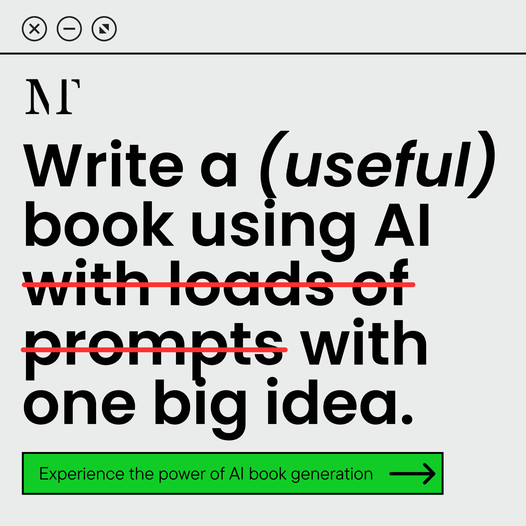Understanding Writer’s Block
Definition and Causes
Writer’s block is when you just can’t get the words out, even though you’ve got the skills or the drive tucked away somewhere. It’s like a wrestling match with your imagination going up against a blank page—kinda like Hulk Hogan versus a very stubborn brick wall. Several things might throw a wrench in your creative gears:
- Fear: You’re scared stiff that someone might say, “Well, this isn’t Pulitzer material,” and that squashes your voice.
- Procrastination: Avoiding that blank page like it’s a Monday morning, making the whole task loom like Mount Everest.
- Perfectionism: Chasing after that flawless text can weigh heavy like carrying a piano on your back.
- Distractions: Whether it’s your phone buzzing or life’s curveballs, they can steal your focus in a flash.
Sorting out these pesky gremlins is your starting line in the race to kick writer’s block to the curb.
Impact of Writer’s Block
The trouble with writer’s block is it doesn’t just jam up your mind; it can knock your confidence clear into left field. Consider a few downsides:
- Decreased Productivity: It’s like your creative tap’s been turned off, and the words just ain’t flowing.
- Reduced Confidence: Each time writer’s block sweeps the floor with you, it chips away at how you feel about your writing chops.
- Increased Anxiety: The tick-tock of the deadline clock can get under your skin, cranking up the stress level.
People find that writer’s block can be picky too—maybe you can scribble out a snappy text message, but that essay remains an uphill battle, a real emotional rollercoaster. The gist is, understanding what’s what with writer’s block is crucial before you can send it packing. Want a little backup? Check out beginner writing tips and creative writing exercises to help get things rolling again.
Psychological Aspects of Writer’s Block
Writer’s block isn’t just about blank pages and looming deadlines—sometimes it’s deeper than that. Getting a grip on the mental stuff that messes with your mojo can help you bust through the barriers and keep those words flowing.
Fear and Inadequacy
Fear is a massive wall that can block your creative juices. It comes in all shapes and sizes: fear that your stuff’s not up to scratch, that you don’t know enough, or that everyone else’s work is way better. These doubts can make your brain freeze at the sight of a keyboard if left unchecked. But here’s the kicker: facing that fear head-on and owning it can actually fuel your writing and push you forward. Like Jerry Jenkins says, realizing that you’re not alone in this fear-fest can dial down its grip on you.
| What’s Freaking You Out | What it Means |
|---|---|
| Self-Doubt | Wondering if you’ve got what it takes to be a writer. |
| Competition | Stressing over how your work stacks up against others. |
| Knowledge Gaps | Worrying you’re not the expert you should be. |
Treating these fears like hurdles—not roadblocks—can spark creativity and prompt some new writing paths.
Procrastination and Writing
Ah, procrastination—the thief of time and that evil voice whispering, “Later, dude.” It’s a heavy hitter in the writer’s block saga. You might find yourself putting off writing until the guilt and anxiety flood in, jamming up those creative channels. But get this: penciling in “procrastination days” might just flip the script. By planning your time-wasting tendencies, you set achievable writing targets without sweating over snagging that Pulitzer every day. It’s not just about getting stuff done; it’s about building healthier writing habits.
| Procrastination Battle Plan | What’s Involved |
|---|---|
| Schedule Days | Designate certain days for chilling or non-writing fun. |
| Daily Targets | Aiming for small, achievable goals every day. |
| Know Thyself | Figuring out when you’re in the zone and going with it. |
Seeing procrastination as part of perfectionism’s nasty grip makes it easier to tackle. When you get to know your own creative ebbs and flows, you can spot when you’re most on your game.
Tuning into the psychological signals messing with your writing can help you create a more chill, supportive vibe for yourself as you tackle writer’s block. Want more gear to boost your writing chops? Check out our go-to’s on beginner writing tips and newbie author advice.
 What Poetry Feels Like
What Poetry Feels LikeOvercoming Writer’s Block
Writer’s block can be one of those pesky challenges that sneak up on you, but tackling it can give you the tools to forge ahead. Let’s talk about three things: dodging procrastination, conquering perfectionism, and fighting off pesky distractions that are the party crashers of writing.
Dealing with Procrastination
Procrastination’s the irritating bug that every writer seems to catch at some point. Instead of trying to swat it away completely, make friends with it. Set aside time to laze around, guilt-free, while keeping an eye on those deadlines. Believe it or not, this can make you way more productive (Jerry Jenkins).
| Procrastination Hacks | What It’s All About |
|---|---|
| Timed Breaks | Mark your calendar for breaks and let your brain breathe. |
| Time Blocking | Divide your day into chunks of writing and chilling. |
| Little Rewards | Treat yourself for hitting goals; it’s like training a puppy, but you get cookies! |
Sprinkle these gems into your day, and you’ll be able to sidestep the sticky trap of procrastination.
Managing Perfectionism
Perfectionism – double-edged sword, right? It can fine-tune your craft or lock you in a cycle of endless tweaking. Try splitting writing and editing into two separate gigs. Just spill your thoughts out first and fix up the mess later (Jerry Jenkins).
| Perfectionism Busters | How It Works |
|---|---|
| Free Flowing | Write like no one’s reading. Critique later. |
| Completion Goals | Nail down a word count or page finish without needing everything to be perfect. |
| Peer Review | Get your crew to peek at your work so you can tweak it with fresh feedback. |
These ideas help shift the focus from perfect to done, easing the path to a finished piece.
Addressing Distractions
Distractions are like those annoying pop-up ads – they just keep coming. Whether it’s your phone, people, or even the latest game update, they can wreck your groove. Set some rules and show who’s boss. Use tools like Freedom to shut out disturbance (Jerry Jenkins).
| Distraction Combat Tips | Details |
|---|---|
| Set Your Stage | Make your own little writing haven that’s quiet and comfy. |
| Mute the Noise | Turn off phone bings and zap extra browser windows. |
| Stick to Your Schedule | Consistent time slots can turn your writing time into a no-go zone for disturbances. |
Building these habits will tighten your focus and boost productivity. Still hungry for more? Check out beginner writing tips and writing advice for new authors to spark up your creativity.
Strategies to Combat Writer’s Block
Feeling stuck with your writing? Been there, done that. The good news is, there are ways to shake things up and get those creative juices flowing again. Here’s how you can turn those blank pages into a masterpiece:
Breaking Writing Tasks
Bite-sized pieces, it’s the name of the game. Trying to tackle everything at once? That’s a ticket to overwhelming city. Break your writing into smaller sections. It’s like eating a giant pizza one slice at a time instead of trying to stuff the whole thing in your face. Focus on knocking out one scene or chapter at a time. It’ll keep your writing mojo alive and kickin’.
Here’s a simple way to organize:
| Task Section | Goal | Status |
|---|---|---|
| Outline the plot | 2 hours | In progress |
| Write the first chapter | 3 hours | Not started |
| Develop character profiles | 2 hours | Done |
Check these off as you go. It’s like crossing things off a to-do list and who doesn’t love that? More on chunking your tasks can be found in our guide on how to outline a story. Go on, have a look.
Using Writing Software
Hey, there’s tech to help too. Tools like Scrivener and Citavi are like superheroes for writers. They get your ideas organized and help you stay on track. Plus, no more losing that random insight you scribbled while half asleep at 2 AM.
Check out these options:
| Software | Features | Best For |
|---|---|---|
| Scrivener | Keeps projects in line, handles characters, multiple formats | Big works like novels |
| Citavi | Tracks references, organizes thoughts | Scholarly stuff |
| Google Docs | Works in real-time, easy to share | Group writing |
Picking the right tool can be a lifesaver. It’s like finding the perfect coffee that sparks your writing energy. Our writing advice section offers even more cool tools and tips, such as how to improve writing skills.
Establishing Writing Habits
Make time to write, like you make time for that favorite TV show. A regular writing schedule can turn scribbling into a smooth-running machine. Treat writing time as sacred – it’s the ‘you time’ for your creative side.
Forget about perfect sentences at first; just get those thoughts on paper. Who needs perfection when you can have fun with “ugly first drafts”? You can polish it later, trust me. For some insight on crafting a writing habit that sticks, drop by how to develop a writing habit.
Give these strategies a shot. You might just find that writer’s block is more like a speed bump on your road to writing success.
Coping Techniques for Writer’s Block
Getting stuck while writing happens to everyone, but fear not! We’ve got some nifty tricks up our sleeve to help you shake off that block and get those words flowing again. Here’s the scoop: stick to regular writing habits, sneak in some breaks, and give the Pomodoro Technique a whirl.
Regular Writing Habits
If you’re looking to kick writer’s block to the curb, getting into a writing groove is your best bet. The pros know it well—more writing often means fewer blockages. Keeping at it regularly can help keep ideas buzzing around in your head (lumivero). Set yourself up for success with a routine that works for you.
Keep it simple by giving yourself some space each day to jot things down. Checklists can be your buddy here—track what you’re doing and watch your progress.
| Writing Habit | How Often |
|---|---|
| Daily Morning Pages | Every day |
| Journal Writing | Once a week |
| Short Stories | Every two weeks |
| Freewriting Sessions | Once a month |
Getting these routines in place keeps your brain ticking and beats back those writer’s block blues.
Taking Breaks
Need a new perspective? Sometimes a break is just what the doctor ordered. Step away from your screen and give your mind a chance to reboot. Stretch your legs, enjoy the fresh air, or find some chill vibes through mindfulness (Spines).
Make breaks a regular part of your writing sessions. Consider these activities:
- Take a stroll: Get moving and let inspiration strike.
- Read something new: Get those creative juices flowing with fresh perspectives.
- Hang out: Chat about ideas and catchup over coffee with a friend.
These little pauses can give you the energy boost you need to jump back in the saddle and tackle those ideas head-on.
Trying the Pomodoro Technique
The Pomodoro Technique is your go-to for staying focused and fired up. The gist? Work in timed bursts, usually 25 minutes, then take a breather. It’s a recipe for staying motivated and avoiding the dreaded burnout (Spines).
Get it rolling like this:
- Pick a project: Zero in on what needs doing.
- Set the timer for 25 minutes: Get cracking and don’t stop till it buzzes.
- Take a five-minute pause: Shake it out with a stretch or a short rest.
- Repeat: After four rounds, reward yourself with a longer break of about 15-30 minutes.
With this method in your toolkit, you can keep the creativity alive and get past any mental blocks.
These methods should have you back in the zone and cranking out sentences in no time. If you’re eager for more writerly wisdom, swing by our beginner writing tips page.
Creative Solutions for Writer’s Block
Stuck in a rut? No worries! Here’s how you can shake off writer’s block and get your creative juices flowing again:
Hunting for Ideas
Finding fresh ideas is key to waving goodbye to writer’s block. Try out these activities:
- Dive into Books: Read everything you can get your hands on, from sci-fi to biographies to help unlock different kinds of stories and styles.
- Explore the Arts: Listen to music, watch movies, or visit art galleries for a burst of creativity.
- Be an Observer: Take a walk, wander in nature, or people-watch. New sights and sounds can stir up inspiration.
- Jot it Down: Keep a little notebook for thoughts, dreams, and those random ideas that pop up when you least expect them (Spines).
Sharing Your Writing
Throwing around ideas with others can open up new angles and knock down barriers. Here’s why sharing is caring:
- Fresh Perspectives: Feedback from friends or fellow writers can provide a whole new perspective and possibly a light-bulb moment.
- Stay Motivated: Tell someone about your goals to help keep you pushing forward.
- Get Some Love: Sharing struggles and triumphs makes it easier to keep moving.
- Speak It Out: Talking through your ideas can help you understand them better and might lead to a breakthrough (Spines).
Setting the Scene for Creativity
The right setup can work wonders on your mindset and productivity. Consider these tweaks:
| Thing | What to Do |
|---|---|
| Lighting | Let in sunshine or use cozy lamps. |
| Colors | Pick shades that either perk you up or calm you down. |
| Vibe | Add personal stuff or art that gets your brain buzzing. |
| Tidiness | A neat desk helps keep your mind clear. |
| Greenery | Some plants can lift your mood and clean the air. |
Play around with your space to see what actually makes you more productive (Unlocking Your Creative Flow).
By weaving these ideas into your routine, writer’s block doesn’t stand a chance. Wanna dive deeper? Check out our beginner writing tips or explore more creative writing exercises.

 Grab my poetry book, 'we're all just wanderers in the end' Here
Grab my poetry book, 'we're all just wanderers in the end' Here AD: Your Book Finally Written...
AD: Your Book Finally Written...